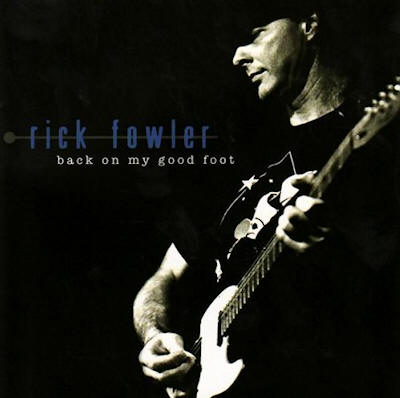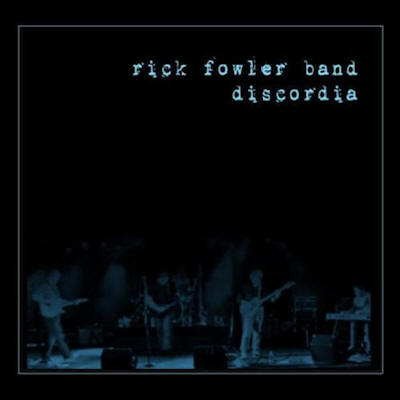
Painting © 2004 Loz
Arkle
Website
© Copyright 2000-2011 Alan White - All
Rights Reserved
Site optimised for Microsoft Internet Explorer
Early Blues Interview
|
|
Rick
Fowler hails from Georgia, USA, a former guitarist for local bands
Fortnox and Bombay, he recorded the blues-rock album "Back On
My Good Foot" on the Jammates Records label in 2008.
Here's
what UK's Blues Matters magazine said about
"Back On My Good Foot"
in July 2009: Following a series of email dialogues with Rick, I was fortunate in arranging an interview: Alan: What are your first musical memories growing up in Georgia, USA?
Alan: Did you come from a musical family - is there a long musical heritage? Rick: I did not come from a particularly musical family although I had two uncles that played music regularly. One was a bluegrass banjo player and the other played guitar in a local rock band. Both my brother and I somehow both ended up playing music. Alan: Did you always want to become a musician?
Rick: I never had any other dreams that I can remember.
Alan: How did you get started in music - what instruments did you start with? Rick: I started with an acoustic guitar and my folks bought me a Sears (Danelectro) electric guitar and a Silvertone amp. I hooked up with some other kids and we all formed a number of bands throughout our early teens. I finally got a Fender Mustang and it was a pretty decent guitar. In my small hometown of Bowdon, Georgia, there was little to do but play music and the area was loaded with young musicians. We all eventually learned enough to start playing high school dances and teen clubs. I was playing for somewhat of a living while in college. Sleep was an option at that young age and I would be gone every weekend and sometimes during the week. I would sometimes play 250-300 miles away, drive all night, and barely make an 8:55 morning class at college. Alan: What first attracted you to the blues? Rick: I think it was the expression. Many things can be said with the blues that are beyond language. I think that all music, especially blues, is the best way to communicate with others. Alan: What does the blues mean to you? Rick: The blues is a way to pour out one's soul without having to find the words. Whether it be traditional blues, gospel, old country, or bluegrass, it is all blues to me if it is real. Even if a song is not the style commonly identified as blues music, if it is honest and from the heart, it has the true spirit of the blues. I get somewhat turned off by those who think that playing blues is just about showing off on their instruments. People want to hear you cut loose sometimes but I think that the brilliant ones do it in a way that enhances the attitude and flow of a good song and they avoid playing a weak song as merely a vehicle to do ten solos. The solos should bring something to the table and not be just “hey, look at me.” Therefore in my opinion, the blues is totally about trying to share a feeling, such as desperation, loneliness, or struggle. I don't particularly care whether someone thinks I am a good guitar player or not but I do care if I can't touch them with some kind of emotion. I am not doing my job if I can't reach them. Of course, the blues is also about being able to laugh at yourself or at a bad situation. Alan: Tell me a little about your musical journey so far, the bands, gigs and albums along the way. Rick: After years of playing in cover bands, we formed a band in the 1970's that performed original songs called Ziggurat. Before the band got a record deal, I quit to play more bluesy stuff and ended up with a band called Deacon Little. We recorded a few locally-known records and we played as a studio backup band for Bertie Higgins on the single version of the song “Key Largo.” Bertie had a big hit and was signed to a major label. We finally left the small label and changed the band's name to Fortnox. The band got signed to Epic Records in 1982 and had somewhat of a hit single and MTV video with the song “Storm Inside My Head.” When Epic failed to fill orders for our record in a number of stores, we quit touring and dissolved the band. Why play 25 shows a month on the road for little money to promote a record if the label would not ship it anymore? The ex-bass player from Fortnox, the ex-drummer from Ziggurat, and myself then formed a band called Bombay. Eddy Offord had produced Ziggurat and he produced an album for Bombay as well. While in LA, the disgruntled ex-manager for Fortnox maliciously sabotaged Bombay's new management deal and everything fell apart so we disbanded. Throughout these years I had also been recording blues songs and playing little clubs with my friends Harl Baggett and Jonathan Dorsey. I moved to Athens, Georgia in 1991, which is literally full of musicians. I played with tons of folks in various project bands and played guitar on dozens of recordings as a hired gun. Ex-Drivin 'n' Cryin' guitarist Buren Fowler, bassist Greg Veale, drummer Drew Worsham, and myself formed The Lonely White Boys and performed both Buren's songs and my material. We had a very heavy blues base but we were ungodly loud. After that band fell apart, Greg and I continued to play together in a number of blues-based bands. I also played in some side bands with Bill Berry (R.E.M.) and Dave Schools (Widespread Panic) whenever those guys were not touring. These were very bluesy rock bands. In 2008 Jammates Records, a small primarily blues and jazz label, asked me if I would like to record a solo album. We put together a studio band with Gerry Hansen and Bill Berry on drums, Michael C. Steele on bass, Tim “Drawbar” White and Randall Bramblett on Hammond organ, and Jonathan Dorsey played second guitar. Sherry Joyce did some background vocals on the record. When I asked Jammates, “What kind of record do you want?” and they said “whatever you want to do,” I knew that they were a good label for me. Alan: What kind of material were you all playing in the early days? Rick: Primarily British blues-rock, like Animals, Savoy Brown, John Mayall, etc. as well as some American blues like Johnny Winter, B.B. King, and Louisiana Red. Of course, through the early years, the cover bands did Stones, Beatles, and all of the big hits. However, I kept moving toward the blues side of things even in the early days. Alan: When did the Rick Fowler Band get together and how did you all meet? Rick: After "Back On My Good Foot" fortunately got very good reviews, I knew that I had to organize a regular band. Tim “Drawbar” White, who is in the band now, played most of the Hammond parts on that album. Most of the other studio players had tours with Chuck Leavell and other artists to do, so they could not be with me regularly. Greg Veale (bass) and Deane Quinter (drums) played most of the live gigs with me but we often brought in extra players. In 2010, I got to know Michael Doke, a great slide guitar player, through Greg. We decided to put it together as a regular band. Drummer Deane Quinter joined the band as a full-time member. Tim “Drawbar” White came in from the Good Foot album and plays Hammond organ with us as well. I am very fortunate to have these wonderful players and we are all totally on the same page musically. There is no pushing and pulling; we just play and it works. Alan: Who has influenced you the most in your music writing and playing? Rick: Harl Baggett, an incredibly-talented unknown bluesman, taught me much about blues guitar when I was young. We would often jam around on Louisiana Red and Lightning Hopkins songs. Harl and I wrote a bunch of things together and I have recorded some of them on the last two albums. Roy Lee Johnson was a soul singer from Georgia who used to sit in with my band when we were in high school and he taught me much about soul and groove. He was best known for writing “Mr. Moonlight,” a song recorded by The Beatles. Roy Lee was a great soul performer as well and he was very kind to jam with us young guys. As far as lyrical content, approach, and feel, Edgar Allen Poe, Ambrose Bierce, and other writers were influential. Other than that, The Stones, Eric Burdon, Robin Trower, and Johnny Winter had a great impact. Also The Allman Brothers Band heavily influenced almost every musician I know, including me. There are so many that it impossible to name them all. I listened to everything and tried to soak up all I could. However, I never really tried to imitate anyone, just learn from them. Alan: Are there any particular songs that you play that have special meaning to you? Rick: Unfortunately, yes. “Guided Missile” on the Discordia album is straight from my heart. The major American banks have caused more harm to this country (and to the world) than anything on earth. The America that I grew up in is gone forever, thanks to the criminal practices of these greedy banks and corporations. Owning a home is no longer the American dream; it has become a nightmarish burden for most people. It also troubles me that in the US, many people who get only moderately injured or sick end up either bankrupt or dead. Only if one is lucky enough to have an unusually honest health insurance company can he or she escape financial ruin from health problems. I have a musician friend who spent two hours in the emergency room (no surgery) and his bill was $17,000 USD. This is commonplace here and it is not tolerable. In the midst of this, the insurance companies are reporting record profits and they are laughing at anyone middle class or below who faces difficulty. I live in a great country whose people are under constant attack from the entities who are supposed to be on our side. I tried to make “Guided Missile” somewhat humorous in order to avoid sounding completely like an angry radical. However, I wanted to slam these criminals with no mercy. I always remember that people come to shows to have fun and I keep quite a bit of humor in most songs. However, the blues can be a good pressure valve and it is OK to let people vent some anger during the show as well. “Guided Missile” gets the audience going because all of them have been hurt in some way by Wall Street bankers. Other than that song and the like-minded “This Life,” my tunes are not that personal. They are usually about a character in a situation, not necessarily about me. I happen to have Tourette syndrome and people are constantly suggesting that my songs are about the disorder. For example, many people insist that “Infected with the Blues” is about Tourette's. It is not. I have never written a song about Tourette syndrome. Alan: Your 2008 album "Back On My Good Foot" received critical acclaim, tell me about the making of the album. How did you go about putting it together, where was it recorded, and how did you select the songs?
Pat Patten (Jammates Records) and Michael C. Steele (Chuck Leavell Band, Randall Bramblett Band) did most of the producing. We then transferred the 2-inch tape to Pro Tools. The tape pleasantly colors the sound and it carries through to some degree, even when digitized. We used mostly vintage gear and went through a couple of rented B3's before we got the Hammond sound we wanted. Therefore the record was quite expensive for a blues album. We cut about 14 tracks and selected the ones that seemed to fit the album. The label did a great job of selection, in my opinion. Unfortunately, the day we started recording, I went to the doctor for a minor elbow injury. I came out with MRSA staph infection (lasting 9 months) and this made it very hard for me to hold and control a guitar pick. The album was delayed for a couple of months because I could not play. However, I insisted on pressing on with a brace on my arm because, to me, the record does not revolve around my guitar playing; it is a band sound. We kept some of my scratch guitar tracks because the correct attitude was there and because I was not able to overdub at times. The label decided to name the album after the song “Back On My Good Foot” because we ended up with a good record in spite of some struggle. Alan: Tell me about the making of your new album "Discordia". How did you go about putting it together, where was it recorded, and how did you select the songs?
We decided to make this more of a guitar album with interplay between my guitar and Michael Doke's slide guitar. Because Tim was not around, the Hammond parts are minimal and are overdubbed by bassist Greg Veale. It seemed like the time to do a record like this and we did not want to wait. I mixed it and Jammates pitched in on the mastering. Discordia has a much more angry rock edge than Good Foot but I think it suits the way most Americans feel right now. I certainly did not design it that way; it is just what came out of me and the other guys and the title “Discordia” was an afterthought. We decided to include our version of the traditional folk song “I Know You Rider” because it goes over well live and it provides a little relaxation to the record. Alan: Tell me about the local blues scene in Georgia? Does it vary much in each region of the State? Rick: Georgia has a rich music scene with tons of great blues and blues-rock players. Atlanta seems to have slipped out the rock and blues world to a great degree and become more of a hip-hop city. This is sad for some because a lot of Atlanta rockers feel somewhat abandoned. However, the city is full of incredible players in all genres and there are still a few good blues spots in Atlanta. Athens enjoys quite a bit of good local blues and roots music and it also has a huge rock scene. There are also some very active music scenes in Carrollton, Savannah, Columbus, and other Georgia towns. Alan: Where does the band usually play gigs? Rick: We constantly play local venues and we travel as well, in the US and Canada. It has been a few years since I have been to Europe but my goal is to soon get this band over there for at least a brief tour. Alan: Are there any of the old blues guys left playing locally? Rick: Very few of the true old blues masters here are still alive. However, tons of middle-aged and older blues players are carrying the torch in good style. Alan: Some music styles may be fads but the blues is always with us. Why do you think that is? Rick: I think that it is because the blues is real and it is also the foundation for most popular music. It seems that the big music business people simply want a musician to be an actor playing the role of a character they create. They care nothing about the soul of the artist. I think that this is why the major record label is becoming extinct. It is also why the blues will never become extinct. The blues does not depend on a fabricated image. It stands on its own because both the player and the listener can feel something real. There is magic, not marketing. I always say that I am a “blues-rock” artist because I don't want to claim to be a pure bluesman. My band plays what it feels and we don't care at all about fitting any mold, whether that mold is created by a marketing person or by a blues purest. If what you play is significantly altered to fit someone else's desires, it is no longer coming from your soul; it is compromised. Alan: How do you see the future of live blues music in the USA? Rick: I see so many young and very real blues-inspired players that I know that it will never be lost. If we ever lose the blues, we have lost the most effective form of communication in the world. Alan: And finally, as you know I run the earlyblues.com website as I’m passionate about blues and gospel music. I try to support live blues music in any way I can – I can’t play a note on any instrument so this is my small way of helping keep the blues alive. Do you have any comments on my website? Rick: I truly believe that your website is unsurpassed when it comes to blues information. It provides a great service to blues lovers all over the world and I sincerely thank you for the effort to create such an informative and entertaining site. If it were not for music lovers like yourself, none of us players could feel the satisfaction of being understood. Thank you so much Rick, I really appreciate your time. _________________________________________________________________________
www.rickfowlerband.com _________________________________________________________________________
Return to
Blues Interviews List |








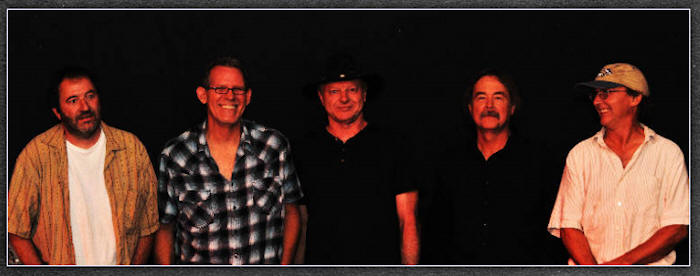
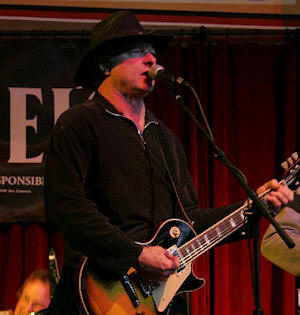 Rick:
I remember hearing The Byrds' version of Mr. Tambourine Man at my
teenage cousin's home. I played the record over and over and I was
fascinated by the sound of that 12-string guitar. I borrowed an old
acoustic guitar from her and started trying to learn the basics. The
British invasion and a few American bands like The Byrds completely took
over Georgia's youth and we all wanted to be like The Beatles or the
Stones. Many of the British bands had deep blues roots. I soon started
listening to traditional blues as well as the rock music of the era.
Rick:
I remember hearing The Byrds' version of Mr. Tambourine Man at my
teenage cousin's home. I played the record over and over and I was
fascinated by the sound of that 12-string guitar. I borrowed an old
acoustic guitar from her and started trying to learn the basics. The
British invasion and a few American bands like The Byrds completely took
over Georgia's youth and we all wanted to be like The Beatles or the
Stones. Many of the British bands had deep blues roots. I soon started
listening to traditional blues as well as the rock music of the era. 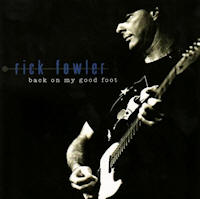 Jammates
Records was kind and wise to allow me to fill a studio with people who
both liked each other and were on the same page musically. Our sessions
were easy and we just captured what we played. Most of the parts are
live but there are a few overdubs. Most of the sessions were at Exocet
Studios in Atlanta because the label wanted to track it analog. Of
course, I love the sound of analog. The vocals were done at John Keane
Studios in Athens. My brother Russ Fowler mixed the record in Atlanta
and Rodney Mills mastered it.
Jammates
Records was kind and wise to allow me to fill a studio with people who
both liked each other and were on the same page musically. Our sessions
were easy and we just captured what we played. Most of the parts are
live but there are a few overdubs. Most of the sessions were at Exocet
Studios in Atlanta because the label wanted to track it analog. Of
course, I love the sound of analog. The vocals were done at John Keane
Studios in Athens. My brother Russ Fowler mixed the record in Atlanta
and Rodney Mills mastered it. 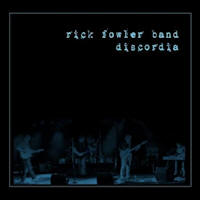 Rick:
After the past expense of Good Foot and the formation of a new,
solid band, we decided to do an album with a tiny budget that would not
take forever to recoup. We set the band up in my garage and tracked to
Pro Tools. We captured it mostly live (with scratch vocals) and then
changed only the things that we thought fell short on initial tracking.
Tim, our Hammond player, was not available for most of the recordings
and he only appears on the song “Guided Missile.”
Rick:
After the past expense of Good Foot and the formation of a new,
solid band, we decided to do an album with a tiny budget that would not
take forever to recoup. We set the band up in my garage and tracked to
Pro Tools. We captured it mostly live (with scratch vocals) and then
changed only the things that we thought fell short on initial tracking.
Tim, our Hammond player, was not available for most of the recordings
and he only appears on the song “Guided Missile.” 